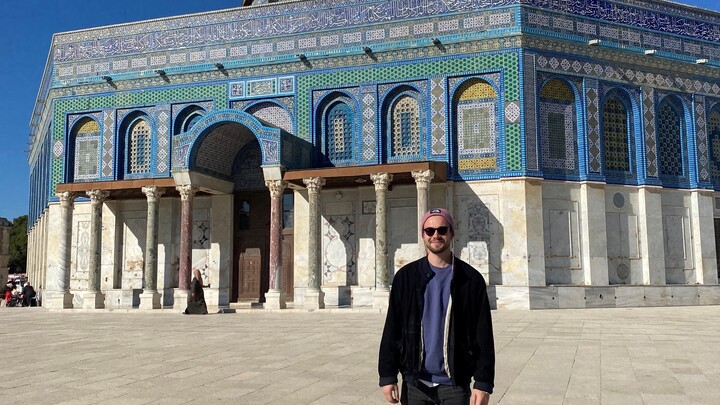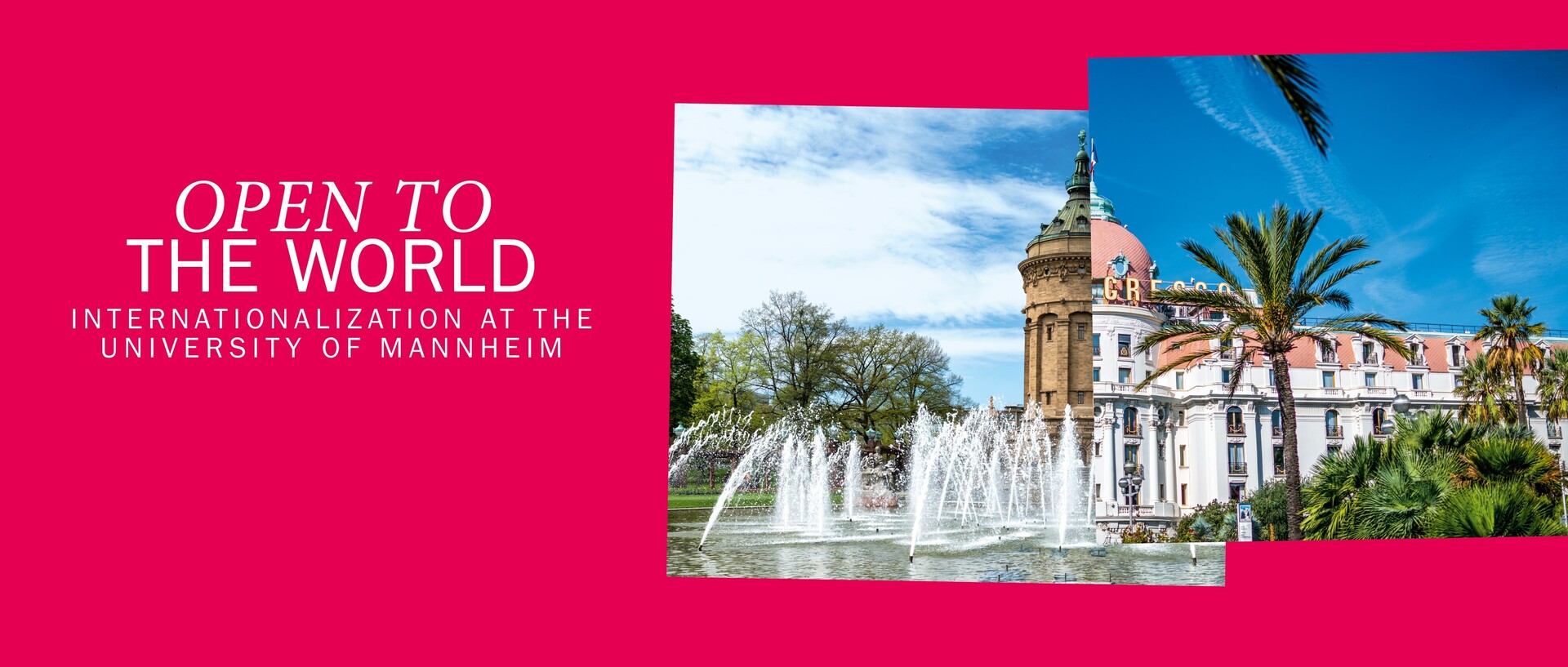International Programs at the University of Mannheim
Is it possible to study in Germany and also get a degree from a university in Canada, Israel, or France? It is at the University of Mannheim, which for over a decade has been offering programs where Mannheim students spend half of their studies at a university abroad and receive two degrees upon graduation. And even students on single-degree programs can still gain a great deal of international experience.

Herzliya is a city in Israel with almost 100,000 residents, located around 30 minutes north of Tel Aviv. This was where Robert Kluge studied for a semester at Reichman University on the degree program Master in Management Analytics, which focuses on digital transformation. Four days a week he had lectures and seminars, and on the fifth day he got to know Israeli companies and the local tech scene. The 27-year-old reminisces: “It was a really fascinating and intensive time because we basically completed two semesters’ worth of work in a single semester. Everything was very hands-on, with lots of presentations and technical planning, plus visits to start-ups in Tel Aviv.”
Reichman University has offered the program since fall 2021 together with the Mannheim Business School (MBS). It was the very first German–Israeli master’s program. It is a full-time program that lasts one year and requires applicants to already have professional experience. After the semester in Israel, Kluge and his classmates from Canada, India, and Vietnam came to Mannheim for a semester. He is now writing his master’s thesis at a DAX company. Previously, he worked as a senior consultant at a consulting firm. “The master’s degree is perfect for me because I was able to learn a lot, acquire new technical skills, and gain experience abroad,” says Kluge. Each student will graduate with one degree from the MBS and one from Reichman University—something referred to as a “double degree.”
Besides the experience of studying at a foreign university, it is the encounters with other countries and people that make the time so memorable. Kluge made sure to arrive early in Israel to be able to explore the country before classes began. On his free weekends, he travelled with classmates and locals: “We visited the Red Sea and the Dead Sea, attended a festival in the desert, and went to Jerusalem several times,” says Kluge. It was especially important to him to have contact with locals so he could better understand the country and culture. “We also often went to Yad Vashem—the Holocaust memorial in Jerusalem—to reflect on the history of the Jewish people.”
The initial groundwork for international programs at the University of Mannheim was laid back in fall semester 2006, when it became the first (and still so far the only) German university to introduce an international semester schedule. Since then, the lecture period has started in September every year. In the rest of the country, it does not start until early or mid-October. This schedule makes it easier for students to spend a semester abroad, something that is mandatory on certain degree programs. “This change also made the university popular with international students: Each year, more than 1,000 international students come to Mannheim for a semester abroad,” says Nadja Kindinger, head of the International Exchange Students team in the International Office.
The first international degree programs were started in 2009 with the Mannheim Master in Management and the master’s program in Economics. They work in the same way as Kluge’s master’s program: Half of the program takes place in Mannheim, the other half abroad, and at the end students graduate with two degrees. Programs of this kind are also available for bachelor’s and master’s students in German studies, politics, and in the future also law. In other cases, like with the International Business Education Alliance (IBEA) option on the bachelor’s program in Business Administration, students go abroad for three semesters and receive one certificate upon graduation. Meanwhile, the bachelor’s program in Romance Languages, Literatures, and Media requires a one-year stay abroad.
The master’s in Intercultural German Studies is a special case: The collaboration with the partner university in Waterloo (Canada) has been in place for almost 50 years, and the current joint degree program is the second of its kind offered by the two universities. Until around ten years ago, Mannheim students completed a one-year master’s in German Studies in Canada and could have the credits counted toward their Magister degree. “Originally, the goal was for the Canadian students to learn German here, and over time the program grew. I completed a master’s degree in Waterloo myself, and going away for an entire year was a great experience,” says Dr. Regine Zeller, academic advisor for German Studies. All of these options have one thing in common: Students not only get to know students and locals in the host country but also study alongside classmates from all over the world.
Acquiring a degree and/
Text: Luisa Gebhardt / October 2022
